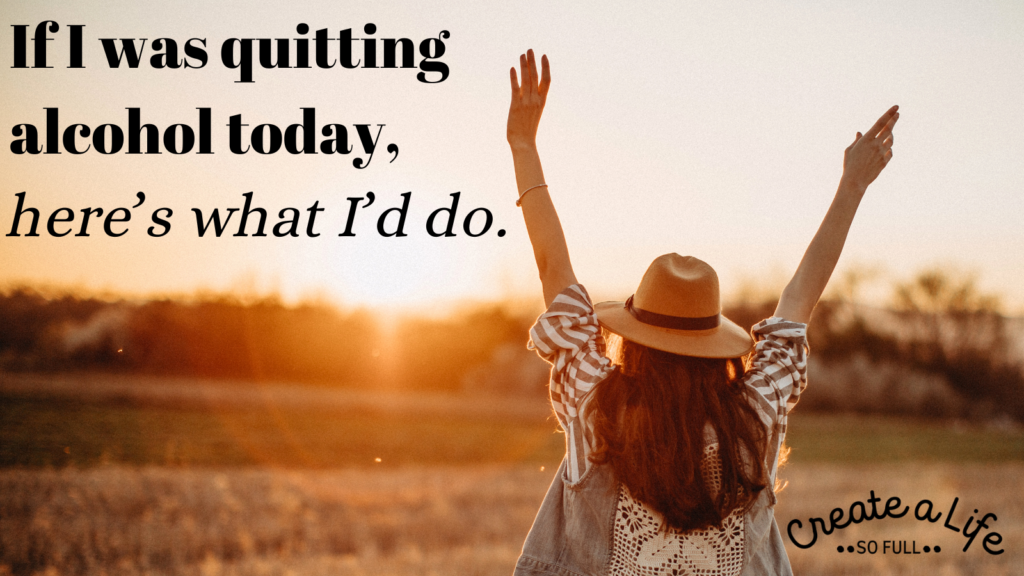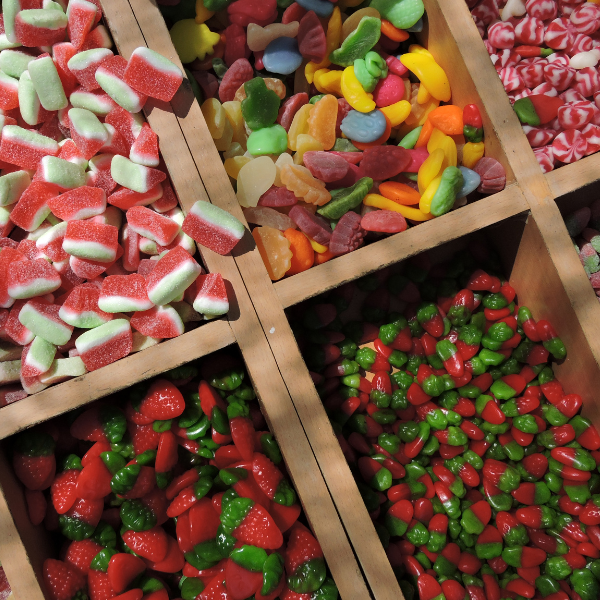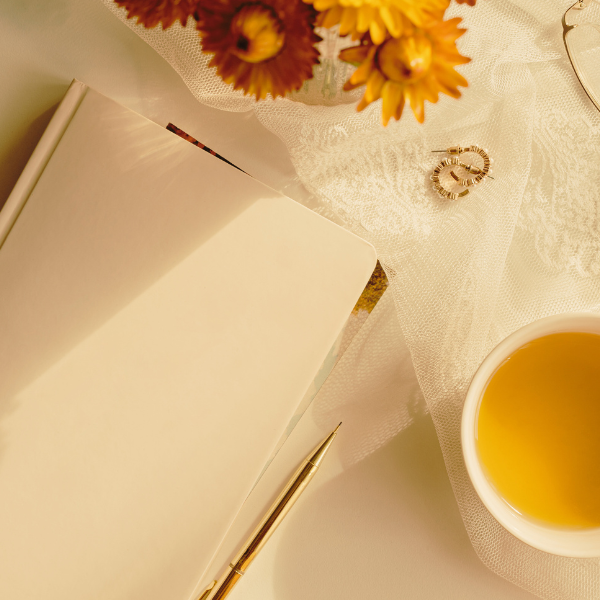
Ya know what drives me crazy?
When I see someone online say, “Today is day one sober. What are some things I should do?” And the only answers they get are “pray” and “go to a meeting.”
There are SO many things you can do to make your first day of sobriety not suck, and to set yourself up for success. If you’re online looking for advice and support on how to proceed into sobriety, you’re likely to feel disappointed if praying and going to meetings aren’t your thing. And don’t get me wrong – I love a good all-recovery meeting. (In fact, I host one every week on Zoom.) But when I was first starting out, “go to meetings” and “pray” were about the last two things I wanted to hear.
I’ve been sober for three years now. On my day one, I felt pretty lost, too. Today, I’m a certified sober coach and I’ve supported dozens of people through early sobriety.
So I’m going to share with you what I would do, if I was on day one of my sober journey and I wanted to give myself the best chance of breaking free from alcohol and really thriving in sobriety.
Stock up on fizzy drinks and sweets.
Have something to satisfy the habit of having a drink in your hand all night. There are tons of great options for drinks, from the basics like LaCroix and Bubly to fancy non-alcoholic sodas and and sparkling teas. I made it a sort of hobby to try out different specialty drinks from the health food store. Picking out different drinks felt like a treat, and gave me something to look forward to at the end of the day.
It’s also worth noting that your body is going to be craving sugar once you quit drinking. Your body processed the alcohol by turning it into sugar, so when you take away the alcohol, your body is going to wonder where the sugar went, and it’s going to start demanding sugar. In the early days, the easiest way to handle this is just to give it the sugar it’s craving. My sweets of choice were Skittles, but find what works for you, and keep plenty on hand. If you find yourself craving sugar and don’t have any on hand to curb that craving, it’s very likely your body will switch to demanding alcohol instead.

Create accountability
Tell someone what you’re doing. Maybe a friend or a spouse, a sober coach, or maybe someone in a sober community. But find someone to tell that you’re choosing to quit drinking alcohol, and check in with them daily for awhile. This is most effective if it’s a single person (versus posting in a Facebook group, or something to that effect.) A person you can be real with is important – someone who can support you on days when it’s really tough.
Follow some sober accounts on social media
If you spend much time on social media, find yourself some inspiring accounts to follow. Social media often tends to be filled with photos and videos of people drinking and partying. Balance that out with some reminders about how good life is when you’re sober, how bad alcohol really is for your body, and a steady stream of tips and advice. Create a folder of “Sober Stuff”, and when you find a post that’s helpful, save it to that folder. That way you can always go back and find the reminders when you need a boost.
Listen to a sober podcast, or start a quit lit book
Keep the inspiration and perspective flowing by listening to or reading something that keeps your thoughts centered and focused on your goal. Here’s a list of some of my favorite books that support an alcohol free lifestyle. Reading even a few pages a day will help tame the alcohol monster in your head. Alternatively, listening to a sober podcast might be exactly what you need – stories of others who are doing exactly what you’re doing can help keep you motivated.
Start a daily journal
Journaling was the most valuable tool I had in early sobriety. When I was craving alcohol, I’d open my journal and write about why. I started each day writing out my thoughts, and often ended my day doing the same. On Day One, start with this question: “What am I hoping to gain from being sober?” Make a list. Keep your journal open, and keep adding to the list all day. This list is going to not only help you get through today, but it’ll give you something to look back on when things get tough in the days to come.

Buy supplies for a new hobby
What hobby have you always wanted to try? Knitting? Painting? Harmonica? Bread baking? Take yourself on a field trip to the nearest hobby store, and grab some supplies so you’re ready to dive in when boredom sets in. Because when boredom sets in (and it will – I promise) that voice in your head is going to get a little louder, reminding you that you weren’t ever bored when you were drinking. Don’t give it that opportunity – have plenty of things around to keep yourself busy.
Decide on a reward For when you reach One Week Sober
Rewarding yourself for success is important! And knowing what the reward will be is really motivating. It can be anything – get creative, and make it something you normally wouldn’t treat yourself to.
Plan out your evening, hour by hour
I’m all about being flexible, but in the early days of sobriety, having a plan is necessary. Eventually, I learned that I needed to have a specific plan for the hours of 4pm to 10 pm. I needed to have a schedule written out so I could move from one activity to the next, without wondering what I was going to do. (Because when you’re wondering what you’re going to do next… you guessed it. That stupid voice pipes up with its ideas, and none of them are good ones.) Block out your evening, and create a schedule with plenty of activities to keep you interested and entertained until it’s time for bed.
With a little bit of effort, you can ease your way into sobriety with confidence and comfort.
As you move through the days, keep trying new things. If something doesn’t seem to be helpful, try something different. Just don’t stop adding tools to your toolbox, and don’t give up on using them.
If you are looking for more tools to add to your sober toolbox, you might love my newsletter. Sign up below.
Note: The suggestions and ideas presented here are a result of my own experience, and are only opinion. It’s important to seek the advice of a medical professional if you are at risk of life threatening withdrawals due to alcohol use disorder. Always opt for “better safe than sorry” and talk to your doctor.
Julie Miller, RCP is a certified recovery coach. After a decade of too much drinking, she found her way into an alcohol free life and is now thriving. Her recovery is founded in overcoming shame, finding her authentic self, and creating a life so full there’s no space left for alcohol. Through her coaching, podcasting, and the recovery community she has built, Julie has found her purpose in helping others find their way out of addiction and into a meaningful, purpose filled life of freedom.
